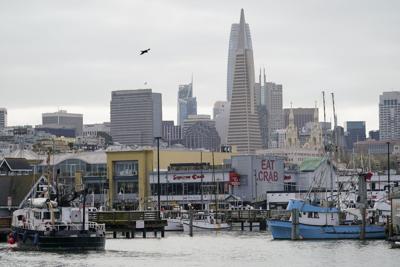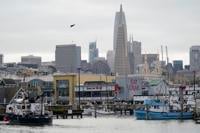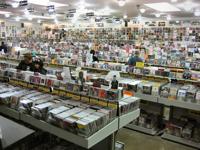San Francisco fishers are speaking out against coastal fishing officials’ decision to cancel recreational and commercial salmon fishing in California for the second consecutive year.
The Pacific Fishery Management Council unanimously voted earlier this week to call of the season that would have begun May 16 because drought, wildfires and algal blooms have dwindled the presence of salmon in state waters. Local businesses impacted by the move said the cancellation adds to preexisting financial struggles, as California wildlife officials cut an already-delayed Dungeness crab season short for most of the state earlier this week.
Business owners argued that the situation could’ve been avoided if state officials incorporated fishing industry members into their conservation efforts.
“It’s not about reduced profits or someone taking a chunk out of our sales. It’s about survival at this point,” Joe Conte, a co-founder of Bay Area seafood supplier Water2Table, told a crowd gathered Thursday along Pier 47. He called the council’s decision a “real gut punch to us here on the pier.”
Conte’s company, which he said does a mix of restaurant and home deliveries throughout the Bay Area, receives about a 30% bump in business during salmon season.
Speakers at Thursday’s rally against the decision said industry-wide disruptions caused by the COVID-19 pandemic, as well as slumps in the local economy, have made iconic fish like salmon all the more crucial to local fishers’ operations. California’s salmon industry is valued at $1.4 billion and brings up to 23,000 jobs annually to the state, according to data from the Golden State Salmon Association, a group representing salmon businesses throughout California.
Salmon can live for up to five years, meaning that many of the fish present in the water for this season were born in 2019, 2020 and 2021— years in which the state contended with harsher drought conditions and extreme weather. California officials recommended that the council close the salmon season.
“While we have been enjoying back-to-back rainy and wet winters this year and last, the salmon that will benefit from these conditions aren’t expected to return to California until around 2026 or 2027,” Charles Bonham, the California Department of Fish and Wildlife director, said in a statement.
California Gov. Gavin Newsom requested a federal fishery disaster declaration Thursday, the first step toward initiating a federal aid request process that would provide financial assistance to communities and businesses impacted by the closure. State officials project a loss of $47 million due to this year’s fishing season being called off.
Andy Guilliano, the owner and captain of Pacific Pearl Charters, told Thursday’s crowd that this year’s decision marked the fourth complete closure in the state’s history since 2008, roughly one closure every four years. Salmon, Guiliano said, represent one-third of his company’s annual revenue.
“Toss in the COVID-19 pandemic, and you have the toughest period in Northern California sportfishing history,” he said.
“The closure is irrecoverable. There is no alternative fish the caliber of a king salmon,” Guilliano added.
Scott Artis, the Salmon Association’s executive director, said Thursday that state and federal water managers have harmed California rivers by removing large amounts of water through processes like damming or pumping, creating high water temperatures that end up killing off eggs.
The association called on the governor to invite fishing industry members into water management discussions. The group is seeking to establish flow and temperature protections in state rivers while also updating California’s Bay-Delta Water Quality Control Plan.
“We are going to be here every year until this thing is wiped out and then we’re all gonna wonder, ‘Where did the salmon go?’ and we can start to point back to a timeline,” Artis said.
“None of us want to see that happen,” he added.









